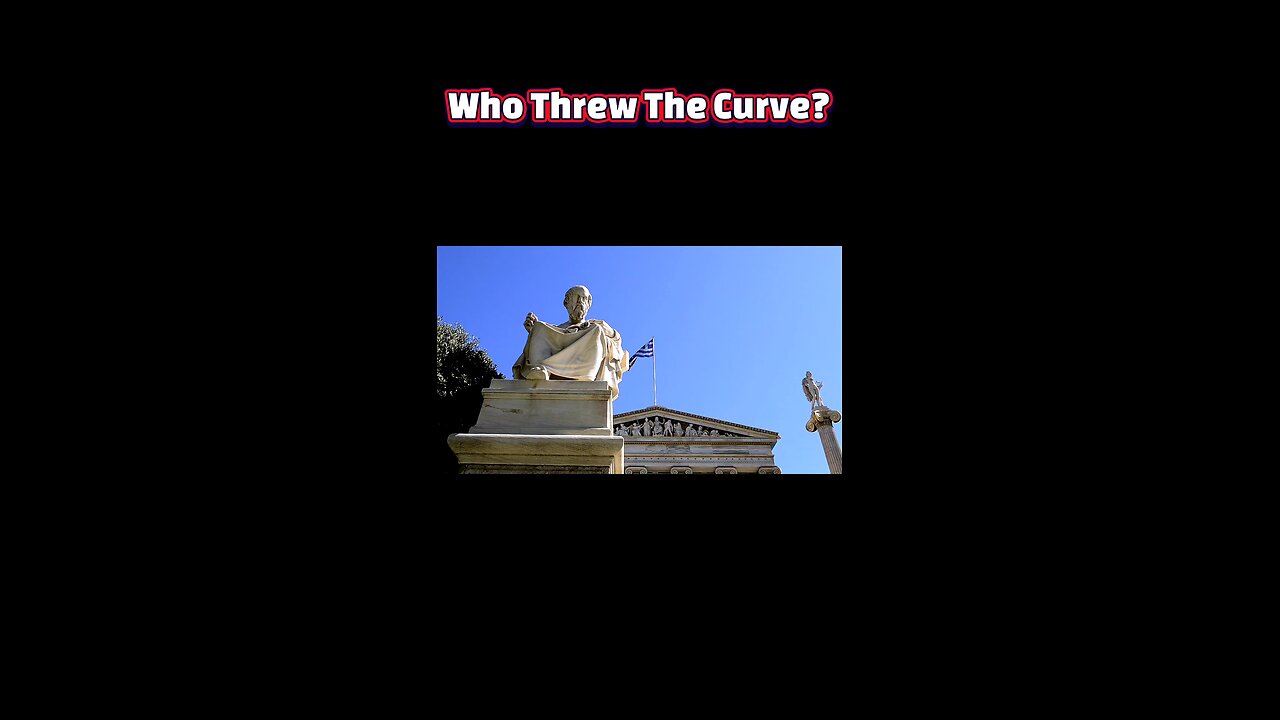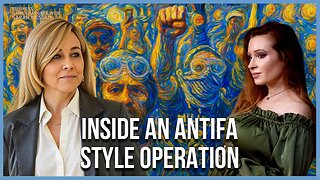Premium Only Content

Beyond Shadows: Illuminating Plato’s World of Perfect Forms
#Plato #Philosophy #TheoryOfForms #AncientWisdom #Metaphysics #PhilosophyThread #IdealForms #BeyondAppearances #GreekPhilosophy #MindMatters
Plato’s theory of forms proposes a fundamental split between an eternal, unchanging world of perfect “Forms” and our fluctuating, imperfect sensory reality. According to Plato, the things we perceive—trees, chairs, virtues—are mere shadows or reflections of their true essences. While a physical tree might decay, the Form of “tree-ness” endures beyond time and space. This dualistic vision underpins Plato’s broader metaphysical system, in which genuine knowledge arises only through understanding these immutable archetypes rather than trusting sensory impressions.
The Forms themselves occupy a transcendent realm accessible only to reason. Each Form embodies the purest exemplar of a concept: Beauty itself, Justice itself, Goodness itself. They are indivisible, changeless, and perfectly intelligible, unlike their material counterparts, which partake in and approximate these ideals without ever fully capturing them. For Plato, without acknowledging the higher reality of Forms, we mistake mere imitations for truth and remain confined to opinion rather than knowledge.
Epistemologically, Plato argues that learning is really an act of recollection (anamnesis), for the soul, being immortal, has already apprehended the Forms before embodiment. Through dialectical reasoning—questioning, defining, and applying rigorous logic—philosophers can recall and clarify these eternal realities. The famous allegory of the cave dramatizes this journey: prisoners chained to shadows on a wall mistake projections for reality until one escapes and beholds the sunlit world above, symbolizing the Form of the Good. Thus intellectual ascent leads us away from illusion toward genuine understanding.
Plato’s theory of Forms has exerted a profound influence on Western philosophy, shaping debates in metaphysics, epistemology, and ethics for centuries. It offers a visionary account of objective truth and moral values grounded in a realm beyond mere appearances. Yet critics like Aristotle questioned the need for separate Forms, arguing instead for immanent universals within objects themselves. Modern philosophy likewise wrestles with the balance between abstract ideals and concrete particulars. Nevertheless, Plato’s visionary framework continues to challenge us to seek a deeper reality beneath the surface of our everyday world.
-
 9:13:12
9:13:12
The Charlie Kirk Show
18 hours agoLIVE NOW: Building A Legacy, Remembering Charlie Kirk
2.15M902 -
 1:55:20
1:55:20
The White House
10 hours agoPresident Trump Participates in the Memorial Service for Charlie Kirk
94.3K90 -
 1:02:41
1:02:41
Sarah Westall
9 hours agoDomestic Terror Operation: Death Threats, Smear Campaigns, Gang Stalking w/ Journalist Sarah Fields
48.1K7 -
 1:51:40
1:51:40
Nerdrotic
9 hours ago $14.74 earnedGobekli Tepe Discovery and "Reconstruction" | Forbidden Frontier #118
77.7K9 -
 29:07
29:07
Tactical Advisor
9 hours agoATF Changes Ruling on SBR & Tacpack unboxing | Vault Room Live Stream 039
88.1K16 -
 2:00
2:00
From Zero → Viral with AI
15 hours ago $3.95 earnedAre You Being Left Behind? Why AI Marketing is No Longer Optional
47.1K5 -
 9:10
9:10
BlackDiamondGunsandGear
13 hours agoI Finally Got it! / Rough Country Build Ep.1
32.1K8 -
 9:44
9:44
Millionaire Mentor
3 days agoCharlie Kirk Brings Woke Student To STUTTERING Over White Privilege Lies
34.1K10 -
 24:12
24:12
MudandMunitions
14 hours agoOff-Roading with NYPrepper Wild Elk & PA’s Most Remote Backroads
21.3K1 -
 DVR
DVR
Bannons War Room
7 months agoWarRoom Live
37.4M8.69K